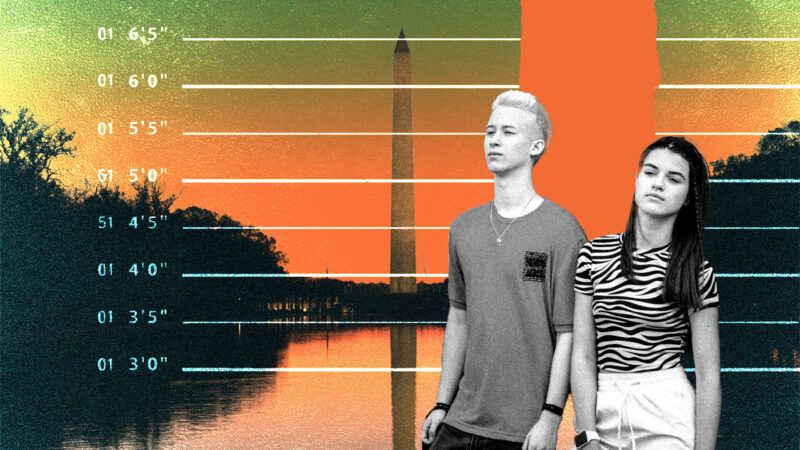A Harsher Teen Curfew Won't Reduce D.C.'s Crime
Between 2006 and 2013, gun violence increased by 150 percent in the city when juvenile curfews were in effect.

After a slew of teen arrests related to illegal fireworks in Washington, D.C.'s Navy Yard neighborhood were made over the July 4 weekend, the city's Democratic Mayor Muriel Bowser signed the Juvenile Curfew Emergency Amendment Act of 2025 into law on July 7. The legislation expanded the city's curfew to apply to all persons ages 17 and younger every day from 11 p.m. to 6 a.m. through August 31. It also prohibits minors from remaining in any public space or establishment within the district during curfew hours.
In addition to the increased curfew hours, the amendment allows the chief of police to implement Juvenile Curfew Zones. In these areas, a curfew can be enacted as early as 8 p.m., and juvenile groups of nine or more will not be allowed to gather unless they are taking part in certain exempted activities. Those who violate the city curfew could face up to 25 hours of community service, while any parent or guardian who "knowingly permits, or by insufficient control allows, a minor to violate the curfew law" will be subject to a fine of up to $500 or community service. The first curfew zone was implemented in Navy Yard last weekend, and no arrests were made.
While public opinion may overwhelmingly support curfew laws, several academics have long argued that curfews are not an effective way to combat crime. A 2003 study published in the Annals of the American Academy of Political and Social Science found that such laws have been shown to "not produce statistically significant changes in crime." Notably, "out of thirty-eight relations between curfew implementation and crime rates, four showed a significant decrease in crime, two showed a significant increase in crime, and thirty-two showed no significant change."
Similarly, a 2015 study found that between 2006 and 2013, gun violence increased by 150 percent in Washington, D.C., when juvenile curfews were put in effect to combat youth gun violence. The study theorized that while these curfews keep citizens off the streets, "removing bystanders and witnesses from the streets could reduce their deterrent effect on street crime." For criminals eager to commit violence, this means fewer witnesses.
Curfews also "run the risk of creating worse relationships between the youth and the police, and run the risk of profiling," William Carbone, a juvenile justice expert, told Maryland Matters in 2023. This theory is supported by the Coalition for Juvenile Justice, which claimed that same year that black youth were 19 times more likely to be targeted for curfew violations than white youth. "Law enforcement officers have the tendency to judge not only a young person's likelihood to engage in criminal behavior, but their chances of rehabilitation, based upon racial/ethnic stereotypes," the group explained.
With 40 percent of the city's 2024 homicide cases remaining open, it's a wonder that fireworks violations—not more serious crimes—are what inspired the district's officials to enact the stricter curfew. Washington's curfew is unlikely to meaningfully reduce crime, but it will reduce juveniles' freedom to associate.


Show Comments (25)